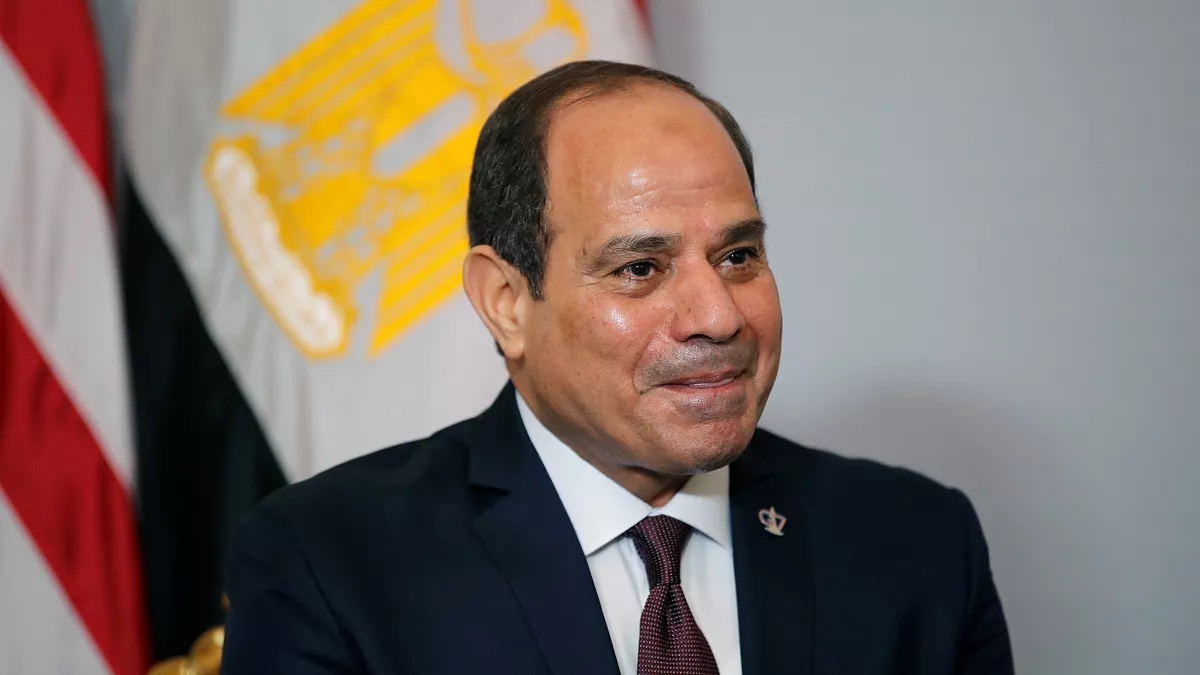Watan-A leaked phone call attributed to Egyptian President Abdel Fattah el-Sisi has sparked widespread controversy, following discussions about a deal worth a trillion dollars in exchange for selling the Suez Canal to foreign countries for 99 years.
The leaked recording, which circulated on social media platforms — with its exact time of recording unknown — features a conversation purportedly between Sisi and an unidentified individual. In it, the Egyptian president discusses details of the alleged deal and Egypt’s stance on it, stating that it’s an old plan that has been in preparation for years.
According to the leaked conversation, Sisi is preparing to justify the deal as a necessary measure to save Egypt’s economy on one hand and to protect national security on the other, as mentioned in the attributed leak.
What did Sisi’s leaked conversation about the sale of the Suez Canal entail?
In the leaked conversation — whose authenticity has not been confirmed and has not been officially commented on by any authority to deny or confirm it — the following dialogue occurred: “The path we’re currently on… the agreements of the investment fund for the Suez Canal will impact national security in an unimaginable way.”
He added: “The idea of the World Bank with the financing institutions they’re talking about… when the offer came up and was discussed for forty years at 400 billion dollars, we said no… I don’t have a problem with it.”
Regarding the Egyptian regime’s stance on the deal, Sisi clarified in Egyptian dialect: “I don’t have a problem with the concession period being 99 years for a trillion dollars. They presented this to me a few days ago, and I found a very positive reaction from international financing institutions.”
خطورة هذا الفيديو ليس فقط في إن السيسي يفرط في قناة السويس اهم امن و دخل قومي في ثواني معدودة، الخطورة إنه بياخذ قرارات بيع البلد في مكالمة تليفون وبكل بجاحة بيقول احنا مستنيين رد الإمارات و الصين كأن مصر ملكية خاصة وليس لها صاحب!
هي البلد مفهاش رجالة ؟
هو جيش مصر اصبح جيش… pic.twitter.com/soxZKMu05C— Mohamed Ismail (@Mohamed71935373) March 3, 2024
“Everything will pass, and people will accept it
” Sisi continued: “This is a temporary precaution until we talk with the Emirates and China and look at these figures. So, even if we push this, the goal is to pay the amount immediately and finish with it… in a second.”
He continued: “Dr. Mustafa has been working on this issue for a year now… they don’t have anything except talking on social media… there’s an entity here studying everything that will pass, and people will accept it, and it’s clear that we won’t need to think about it much.”
Selling airports under the guise of investment
According to Egyptian media reports, the government is set to announce international tenders for the management and operation of all state airports, including Cairo International Airport, in a move that has sparked a lot of debate and interaction on social media.
This move comes a few weeks after the sale of “Ras Al-Hikma” to the Emirates — under the guise of investment — for 35 billion dollars to rescue the Sisi regime, which has devastated the economy and caused his policies to lead to a shortage of foreign currency and sharp inflation rates.
It is worth mentioning that some considered the government’s announcement regarding the future of Egyptian airports as a sale of the country by the regime after failing to find a solution to the economic crises the country is experiencing, amid the failure of the imaginary projects launched by the government and billions spent on them.
Egypt recently signed a massive investment partnership agreement with the Emirates to develop the coastal strip and the city of Ras Al-Hikma west of Alexandria, valued at 35 billion dollars, in one of the largest deals contributing to boosting dollar liquidity in the country and alleviating its economic crisis according to the Egyptian government’s narrative.
Rescuing Sisi with Gulf money
A $3 billion financial support package from the International Monetary Fund, signed in December 2022, stumbled after Egypt failed to fulfill its commitment to transitioning to a flexible exchange rate system and progress stalled in government asset sales.
Since President Abdel Fattah el-Sisi came to power, Egypt — the largest country in the Arab world by population — has received tens of billions of dollars from rescue operations from wealthy Gulf countries that supported the overthrow of the Muslim Brotherhood in 2013.
However, this avenue largely dried up in the past two years, as Gulf countries chose to link support to free market reforms and seek profitable investments in some of Egypt’s most valuable assets, until the breakthrough with the UAE for Sisi’s crisis-ridden regime.
